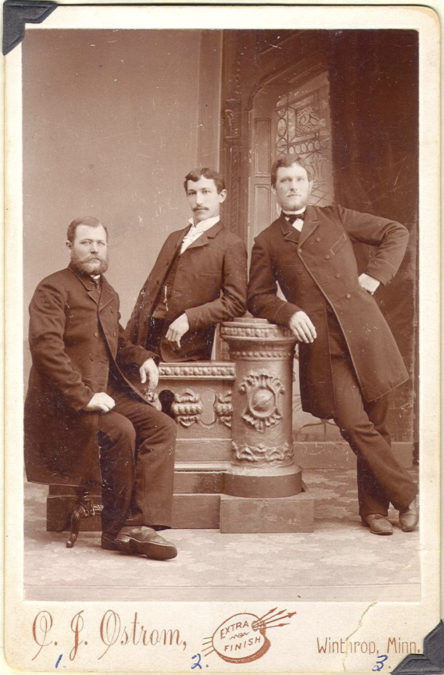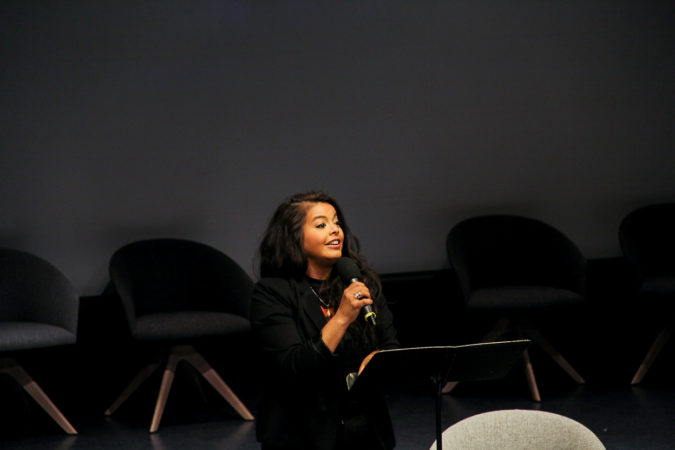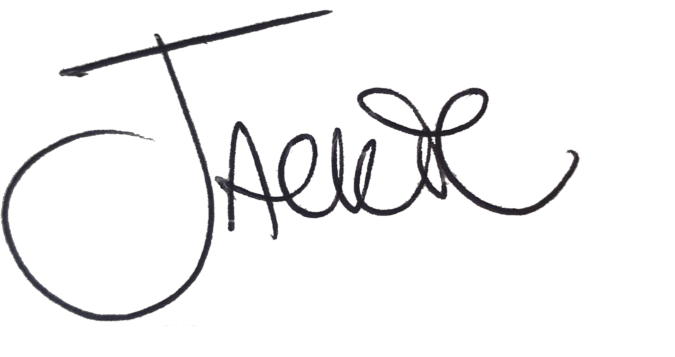Field Notes from Jackie Hoffart
June 18, 2019

Field Notes from Jackie Hoffart — PuSh Communications Director
FIELD NOTES was loosely conceived of as a series of essays by PuSh staff who have been on the road and then report back, but in light of the release of the Final Report on the National Inquiry into Missing and Murdered Indigenous Women and Girls, as well as upcoming Indigenous Peoples Day and Canada Day, we want to take a moment to reflect, not only what this means to us as individuals and our place in society, but through the lens of the work we do as a festival in a community of performing arts. In particular, members of the team have recently attended a few events here in local Coast Salish Territory. This month’s essay comes to you from PuSh’s Communications Director, Jackie Hoffart.
******

I was born on the land referred to as Treaty 4 territory, in Regina, Saskatchewan, which are the original lands of the Cree, Ojibwe/ Saulteaux, Dakota, Nakota, Lakota, and Métis, among many other Nations. My ancestry is mostly German, but, like, “off-brand” German in that, on my father’s side they were Germans who lived in then-Prussia, now-Poland and Romania, and on my mother’s side, they were German Mennonites who lived in then-Prussia, now-Ukraine, and also the Volga River region of Russia, not far from today’s border between Russia and Kazakhstan. All of the people from whom I’m descended came to Canada between 1875 and 1911, as Russia was expelling non-Russians from its vast territories in a process called “Russification”. You’d think that these farmers and pacifists would have recognized the inhumanity of entire ethnic groups being displaced from their lands as they settled in Canada, but, tragically, that doesn’t seem to be the case.
I must admit I feel very ashamed of my ancestors’ complicity in colonialism. I also feel personally responsible for working to dismantle the systems they greatly benefited from and from which I continue to benefit. But shame is not a helpful tool for social justice. As I work to re-educate myself through ongoing study and by forming connections with Indigenous people in my community, I become more aware every day of the unearned privileges that have made me who I am and how they work to provide me with safety, access, and resources while those same privileges (and rights) are systematically denied to others. It is my opinion that there is so much to be done (especially by white settlers) and I’m very grateful to have occasion, often in the course of my work at PuSh, to be able to learn from Indigenous women in the local arts community, and further amplify their work here.

Last month, the Greater Vancouver Professional Theatre Alliance opened its 2019 Making a Scene conference with a keynote by Fire Creator, director, playwright, and actor Kim Senklip Harvey. You can read her entire address on her blog here and I strongly recommend you do that, although nothing can quite replicate how funny and impactful Kim is in person. Her address was largely about laughter, but one of the many things that struck me from her speech was an appeal for settlers to acknowledge how their stuckness (especially in shame and fear) is a barrier to reconciliation.
… I see the sincerity, I see it my slaxts [friends] but here is my answer because it’s the only thing we can control, the work that is going to move you to continued motivated action – you have to go and heal yourself.
Because that unhealed pain, the tears, is continuing to maintain the status quo of oppressing and marginalizing Indigenous peoples.
The unhealed pain of non-Indigenous folx, those who come up to mic’s at talkbacks, on the street, on social media posts asking “but what can I do? What can I do?” is freezing us all in time because this work is relational, we have to move forward together and we can’t if you’re frozen in pain.
Here is an offer – investigate what’s happened in your life that has resulted in you not knowing more about Indigenous ontology.
Interrogate your lived experiences that have kept you from having Indigenous peoples in your life on the regular.
Trouble your pain, trouble it because it troubles us everyday.
We have not had the privilege of not working to heal because it is that urgent for us.
Ask yourself why you have not done it already. Because non-Indigenous folx – you frozen in shame actually obstructs “reconciliation”.
(bold emphasis mine)
I was reminded of how the privilege of ignorance permeates white settler culture. I want to acknowledge, also, that my colleagues of colour have very different experiences when it comes to this type of work, and that a lifetime of white privilege has allowed me to show up painfully late to this work.
Only a few days after that keynote, and along with some other colleagues from PuSh, I attended a session held by Musqueam artist Quelemia Sparrow and some members of Indigenous deaf communities called Access & Reconciliation, which was part of rEvolver Festival’s Industry series, Evolve.
One of the things Quelemia said that really stuck with me was how awkward land acknowledgements by non-Indigenous folks are (for everyone). We all laughed briefly but then talked about why that awkwardness happens, especially as land acknowledgements become somewhat mainstream in the arts. There’s a risk for settlers to centre themselves in an inappropriate way but likewise there’s a risk of under-doing it, or performing something in a rote, scripted way. Quelemia made it clear that this protocol has its roots in acknowledging the lands on which a meeting of people takes place and stating one’s intentions in that interaction. She said, “People would stay in the canoe until issues were resolved,” such as overcoming language issues and understanding guests’ intentions. She also emphasized the responsibility of the host in welcoming people arriving after a long journey. Listening to Quelemia, my mind started racing considering all the different ways PuSh welcomes patrons to performances and also how we can improve.
Discussing when it’s appropriate to use land acknowledgements (in email footers? at comedy shows? on websites?) is complicated but my takeaway was that the desire for mastery—and its cousin, the desire to at least avoid being wrong or offensive—should be reconsidered. I return again to Kim’s keynote where she says:
I empathize with you Medo’s (white folks) because the settler-normative way of being or ontology is about knowing something fully and if you don’t then there is this shame attached and your intelligence is reduced by the culture and that blows.
This shame culture you exist in fails us all. It truly just sucks.
For me as an Indigenous person – our culture is almost the exact opposite. We know and celebrate our community members who live in the vulnerable, the courageous and with humility.
Because the teachings and culture embrace that the world is just too big, the concepts, dimensions, the realities are truly unknowable and knowing that, to me, is Indigenous intelligence.
It’s time for me to cultivate some okayness with discomfort, instead of allowing it to paralyze me.
On the very same day that the Final Report from the National Inquiry into Missing and Murdered Indigenous Women and Girls was released, the nominations for the 2019 Jessies (The Jessie Richardson Theatre Awards) came out (talk about cognitive dissonance). Notably, Kim Harvey’s Kamloopa, which was produced by the Cultch* last year, received 8 nominations, including Original Script and Outstanding Direction. Congratulations to Kim and the entire Kamloopa team and to all the other nominees!
At next year’s festival, PuSh is co-presenting a show with the Cultch called O’wet,** by none other than Quelemia Sparrow, directed by Kim Harvey. Although PuSh has presented Indigenous artists before (notably Tanya Tagaq, Cris Derksen, RPM Records Live: featuring Mob Bounce, Snotty Nose Rez Kids, DJ Kookum, Ziibiwan, Kiinalik: These Sharp Tools with Laakkuluk Williamson Bathory, among others), O’wet marks the first time PuSh will present a major work of scale by a local Musqueam artist at the Festival.
While PuSh brings many artists from around the world to Vancouver each year, it’s exciting for me to focus on this aspect that has always been part of the mission, which is showcasing art that is local, be it to this city or this country, and presenting it on an international stage. As PuSh transitions leadership, I’m really excited to learn what Joyce and Franco have in store for all of us at next year’s Festival.
With gratitude and respect to Indigenous Matriarchs,

*in partnership with Western Canada Theatre, Persephone Theatre and Gordon Tootoosis Nīkānīwin Theatre, and in collaboration with National Arts Centre Indigenous Theatre
**developed with investment by the National Arts Centre’s National Creation Fund https://nac-cna.ca/en/creationfund/project/owet
Thank you for sending this clear and meaningful message along – it resonated strongly with me. Its not the first time I’ve received this message, but it may be the clearest by far. I am very happy that
the Push Festival will participate in this major work by a local Musqueam artist. I look forward to seeing it with anticipation.
Sincerely,
Candace O’Connor